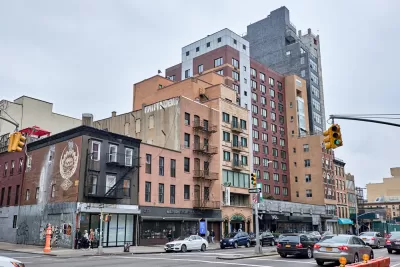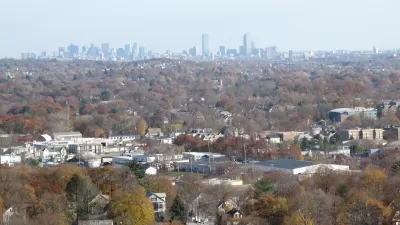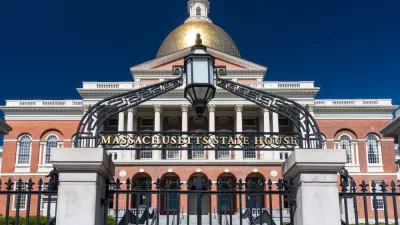Far from an obscure, wonky local issue, zoning reform has the potential to advance social justice in American cities.

The recent focus on the effects of exclusionary zoning is a crucial part of reforming housing policy and addressing discrimination and racism in housing and land use in the United States, writes Richard D. Kahlenberg in the New York Times. "Although zoning may seem like a technical, bureaucratic and decidedly local question, in reality the issue relates directly to three grand themes that Joe Biden ran on in the 2020 campaign: racial justice, respect for working-class people and national unity." Eliminating "economically discriminatory zoning policies," argues Kahlenberg, is a crucial step toward advancing those campaign goals.
"Removing exclusionary barriers that keep millions of Black and Hispanic people out of safe neighborhoods with strong schools is central to the goal of advancing racial justice." Despite a Supreme Court decision that struck down racial zoning in 1917, new policies like single-family zoning and redlining soon took its place, effectively creating the same barriers for families of color. "Racial discrimination has created an enormous wealth gap between white and Black people, and single-family-only zoning perpetuates that inequality." In fact, "the most restrictive zoning is found in politically liberal cities, where racial views are more progressive," relying on mechanisms that separate households by income and class to keep neighborhoods segregated. "Class discrimination helps explain why, despite a 25 percent decline in Black-white residential segregation since 1970, income segregation has more than doubled."
Reforming zoning, writes Kahlenberg, is necessary for achieving racial and economic justice. "After decades of federal inaction on this issue, Congress must move boldly to embrace the country’s anti-racist and anti-elitist mood to remove state-sponsored barriers that divide the nation’s people."
FULL STORY: If You Care About Social Justice, You Have to Care About Zoning

Alabama: Trump Terminates Settlements for Black Communities Harmed By Raw Sewage
Trump deemed the landmark civil rights agreement “illegal DEI and environmental justice policy.”

Study: Maui’s Plan to Convert Vacation Rentals to Long-Term Housing Could Cause Nearly $1 Billion Economic Loss
The plan would reduce visitor accommodation by 25% resulting in 1,900 jobs lost.

Planetizen Federal Action Tracker
A weekly monitor of how Trump’s orders and actions are impacting planners and planning in America.

Wind Energy on the Rise Despite Federal Policy Reversal
The Trump administration is revoking federal support for renewable energy, but demand for new projects continues unabated.

Passengers Flock to Caltrain After Electrification
The new electric trains are running faster and more reliably, leading to strong ridership growth on the Bay Area rail system.

Texas Churches Rally Behind ‘Yes in God’s Back Yard’ Legislation
Religious leaders want the state to reduce zoning regulations to streamline leasing church-owned land to housing developers.
Urban Design for Planners 1: Software Tools
This six-course series explores essential urban design concepts using open source software and equips planners with the tools they need to participate fully in the urban design process.
Planning for Universal Design
Learn the tools for implementing Universal Design in planning regulations.
Caltrans
Smith Gee Studio
Institute for Housing and Urban Development Studies (IHS)
City of Grandview
Harvard GSD Executive Education
Toledo-Lucas County Plan Commissions
Salt Lake City
NYU Wagner Graduate School of Public Service





























